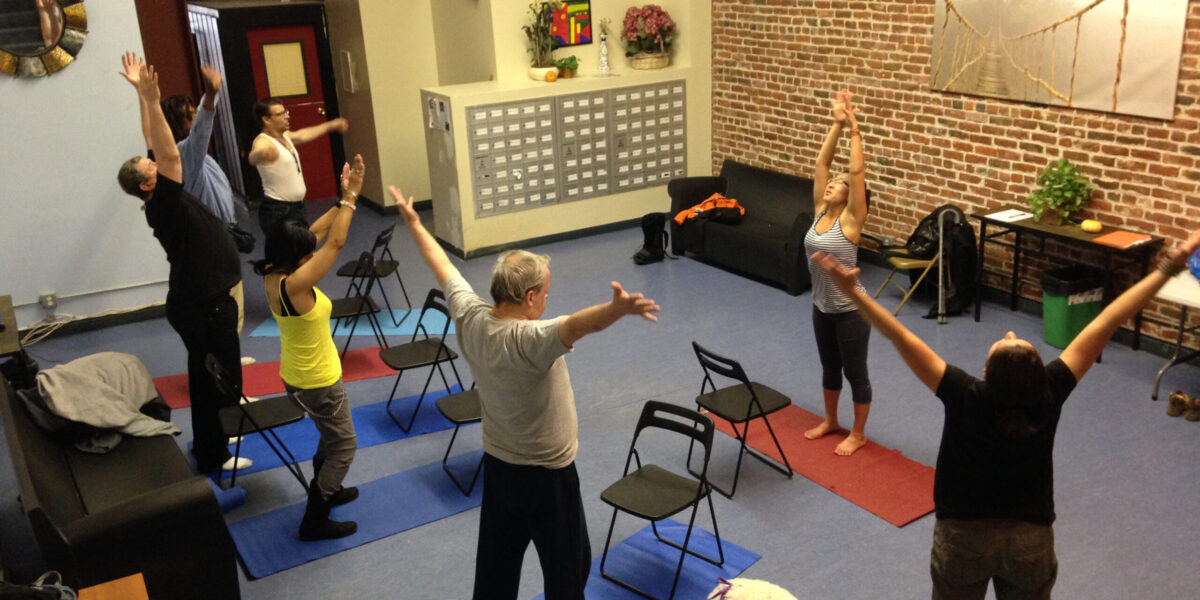KIDRON, Ohio (Mennonite Mission Network) – The benefits of belonging to a group reach far beyond warm feelings. Alyssa Schrag, a Mennonite Voluntary Service alumna, saw remarkable psychological and emotional changes in her clients at DISH (Delivering Innovation in Supportive Housing).
DISH provides permanent homes for San Francisco residents who can’t afford to pay $3,100 each month, the average cost of a one-bedroom apartment.
All DISH tenants have struggled with homelessness in the past, said Schrag. When the tenants move into an apartment of their own, Schrag found that they often struggle with isolation and depression. Substance abuse, mental health, and disabilities can be obstacles as well.
“We provide healthy alternatives to falling back on their old habits,” said Schrag.
In Schrag’s two-year role as a Supportive Housing associate, she helped to build community among tenants in the six DISH hotels across San Francisco. She brought people together through events like ping-pong tournaments, art classes, cooking classes, and yoga.
Community increases self-esteem.
During her MVS assignment, Schrag used her Bethel (Kansas) College art minor to teach classes. She noticed as tenants experimented with different mediums like acrylic paint and papermaking, it had a beneficial impact on their emotions. They became more relaxed, and proud of their work.
One man, whose name is withheld for privacy reasons, was particularly grateful for the art classes. Schrag remembered that he always attended and often brought friends.
“[These events have] done so much for the hotel! It’s mellowed people out,” the man said. “It’s taken the embarrassment out of being an SRO.” SRO stands for “single resident occupancy;” the term describes the type of living spaces the man rents from DISH.
Community increases motivation.
A 2012 study, referenced in the Journal of Personality and Social Psychology, found that a sense of belonging helped a person focus better. One study found that a group of students worked longer and harder on a problem after they were told they shared a birthday with the author of a mathematical article they read.
Over time, Schrag also saw that those who participated in the community events had more motivation. When tenants attended an event at a DISH hotel, they would often venture out afterward, into the community. Sometimes to the grocery store, other times to another art class.
“Our goal is to help tenants leave the hotel and integrate into society,” Schrag said.
Community grows faith.
Living in an MVS community also impacted Schrag’s faith.
“We had good discussions about faith, shared impromptu hymn sings, and experienced faith together in a number of different ways,” said Schrag. “Living in community is a great way to grow in faith. I think it’s possible to have faith without community, [but] I wouldn’t choose it.”
At the beginning of Schrag’s MVS experience, she joined a group of MVS participants that she had never met. They were brought together by the common goal to serve. Schrag was particularly grateful for a road trip to Los Angeles, where the group really bonded together.
“It was fun to see each of our different personalities, which could sometimes conflict, mesh really well,” she said.
As Schrag got to know her MVS unit better and helped to build community with DISH tenants, she realized that community isn’t always built by common interests, as she once thought, but by commitment to each other. Aside from their struggle to keep a home, DISH tenants don’t have that much in common and it wasn’t always their choice to be together, Schrag noted. “But they were still able to form community.”
“I think it’s pretty amazing that despite [their differences], there can be a sense of community.”
###
For immediate release
Mennonite Mission Network, the mission agency of Mennonite Church USA, leads, mobilizes and equips the church to participate in holistic witness to Jesus Christ in a broken world. Media may contact news@mennonitemission.net.







